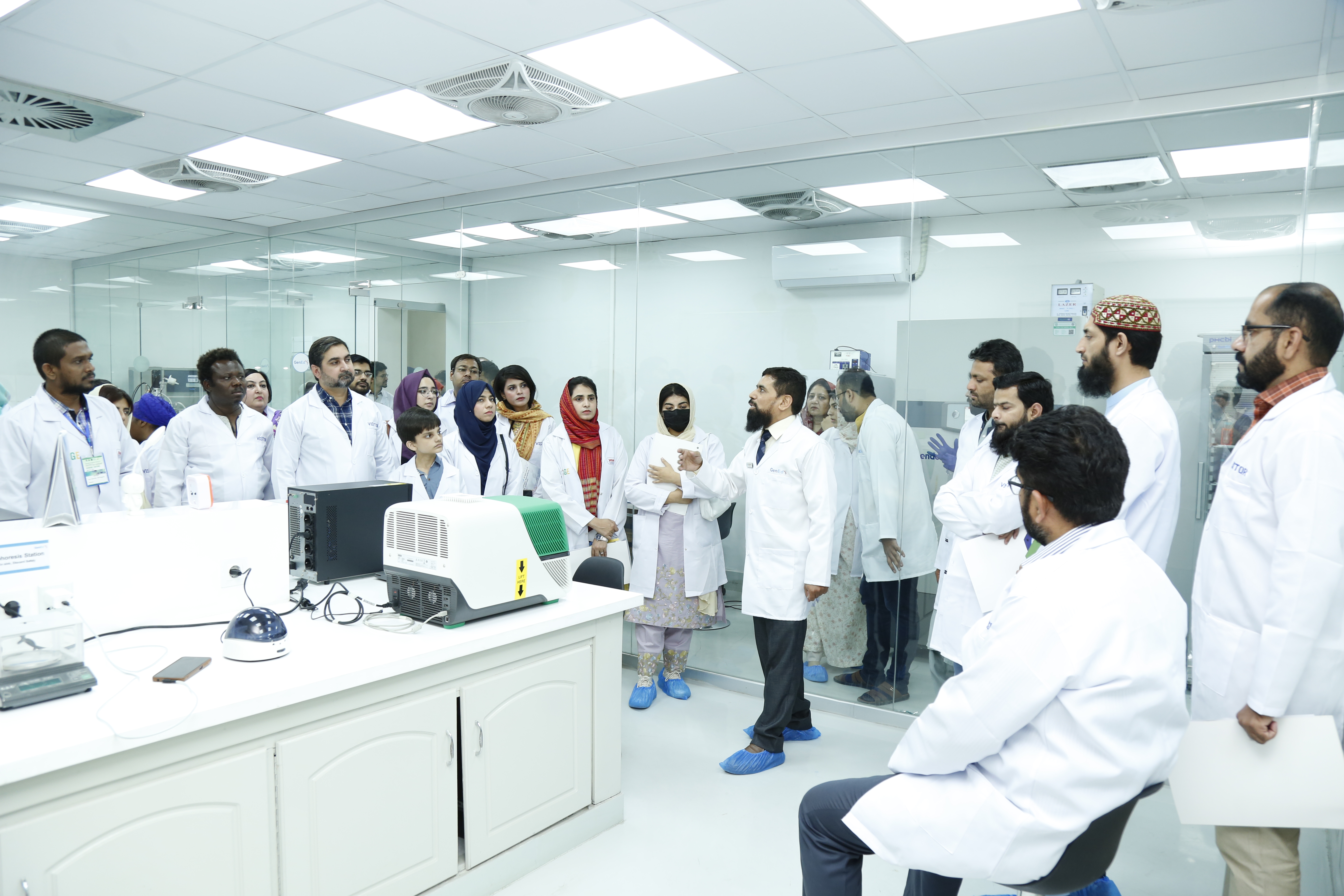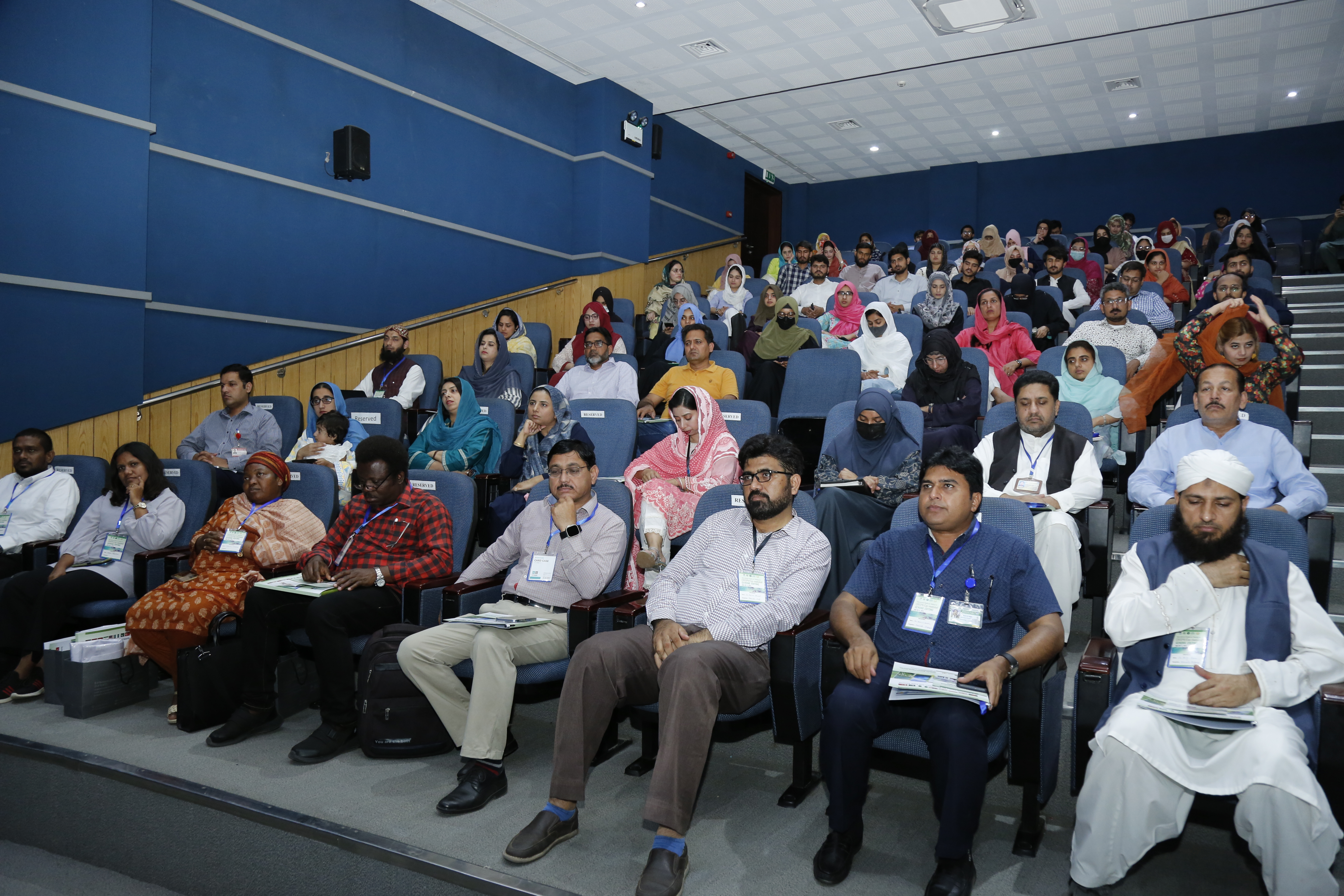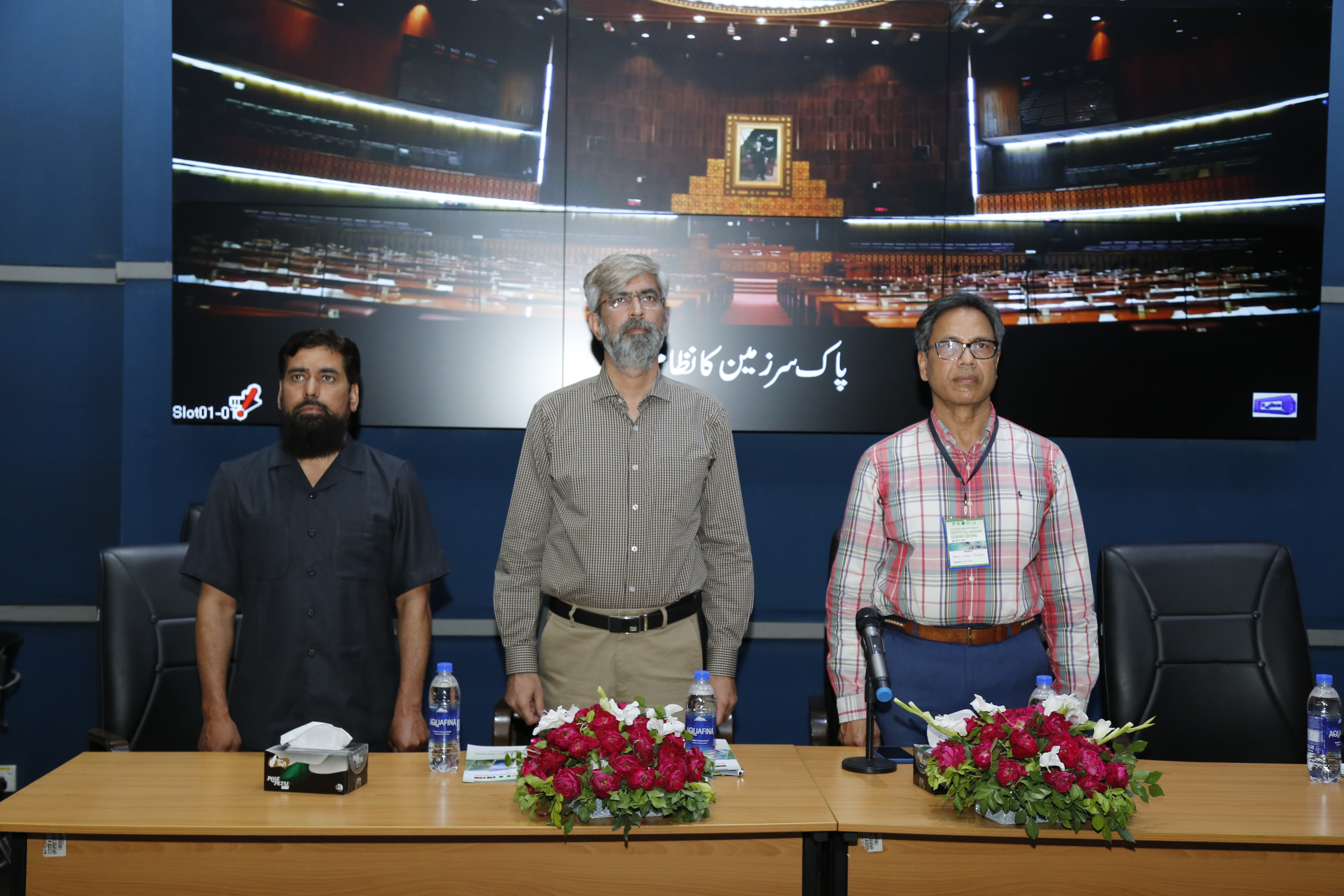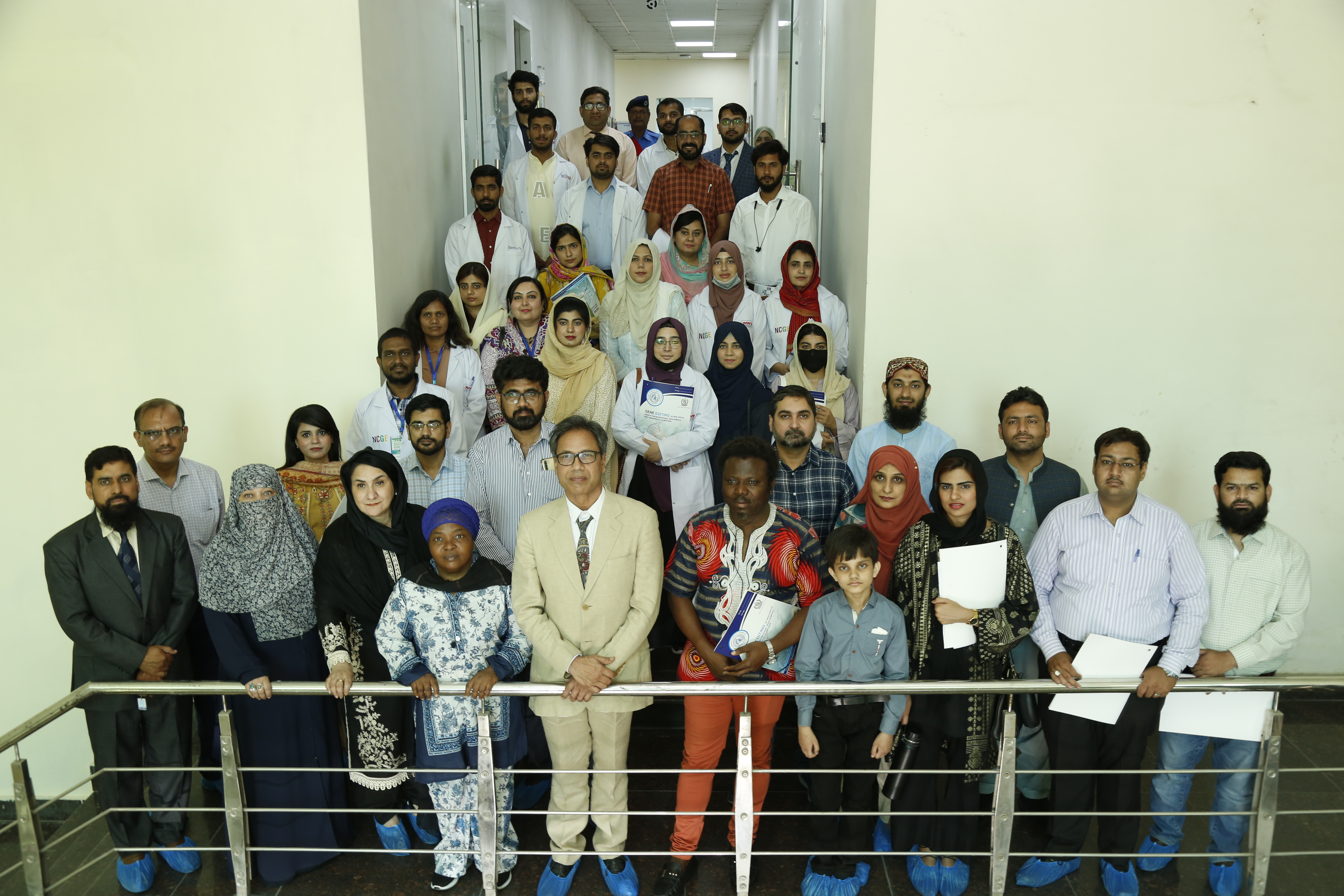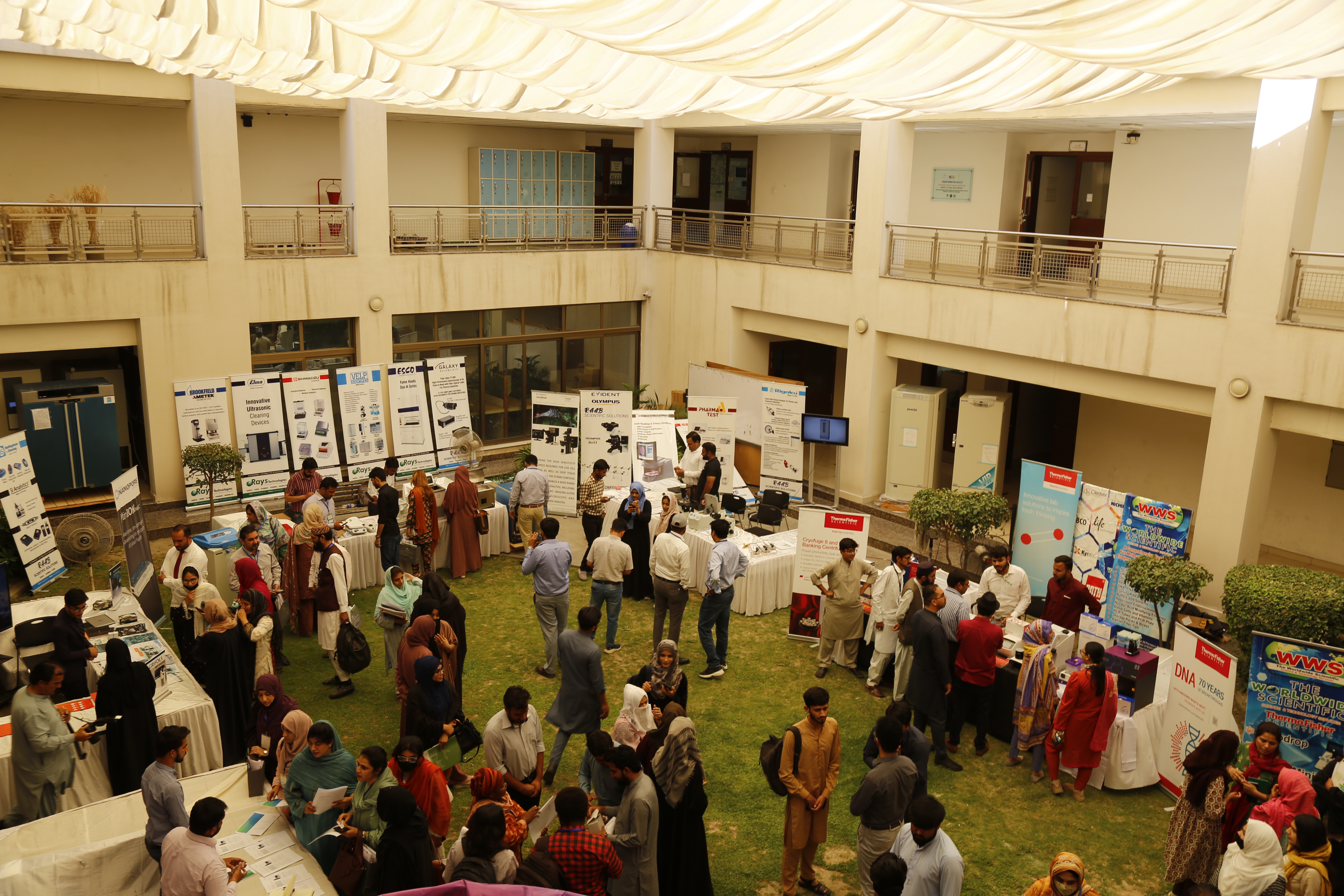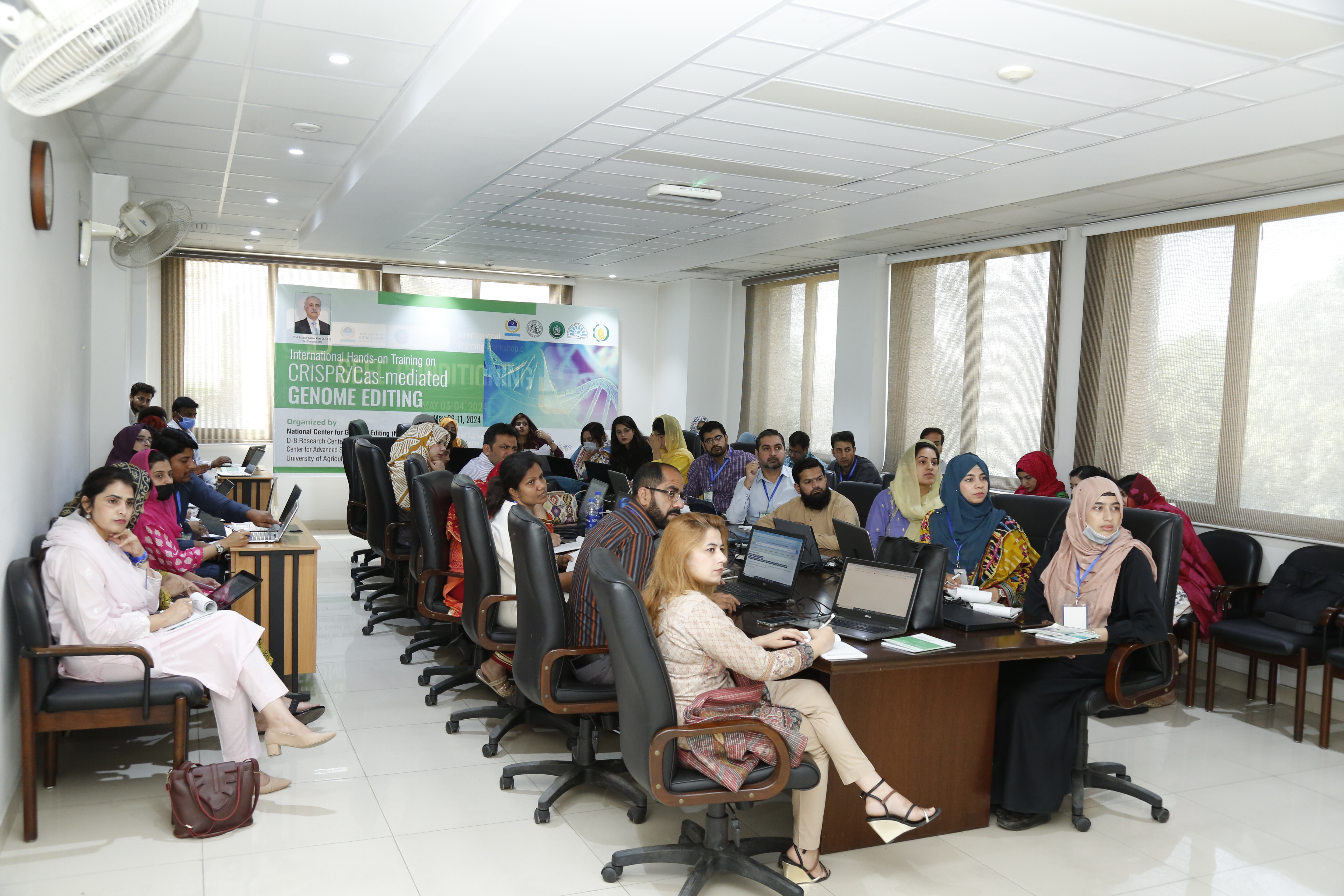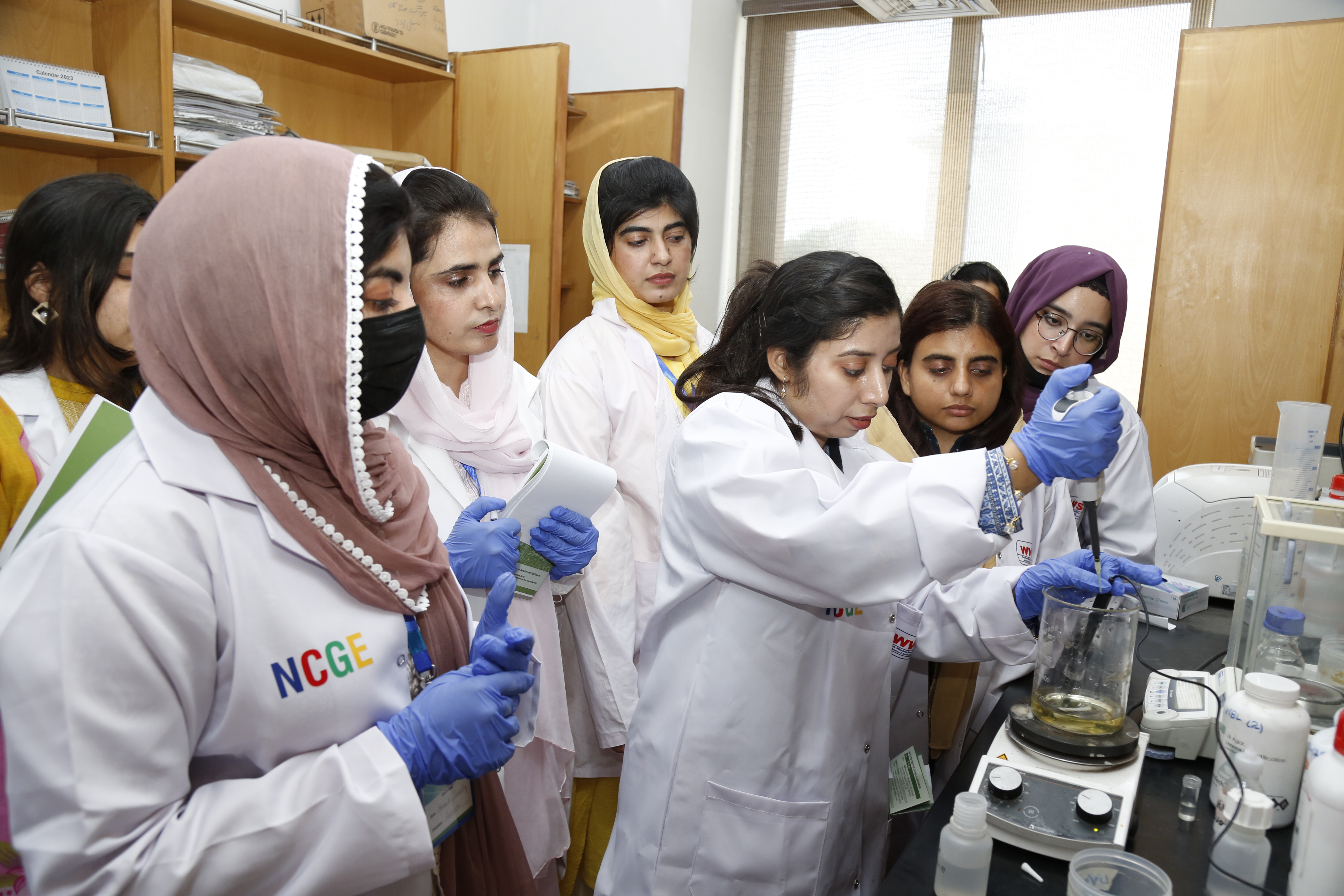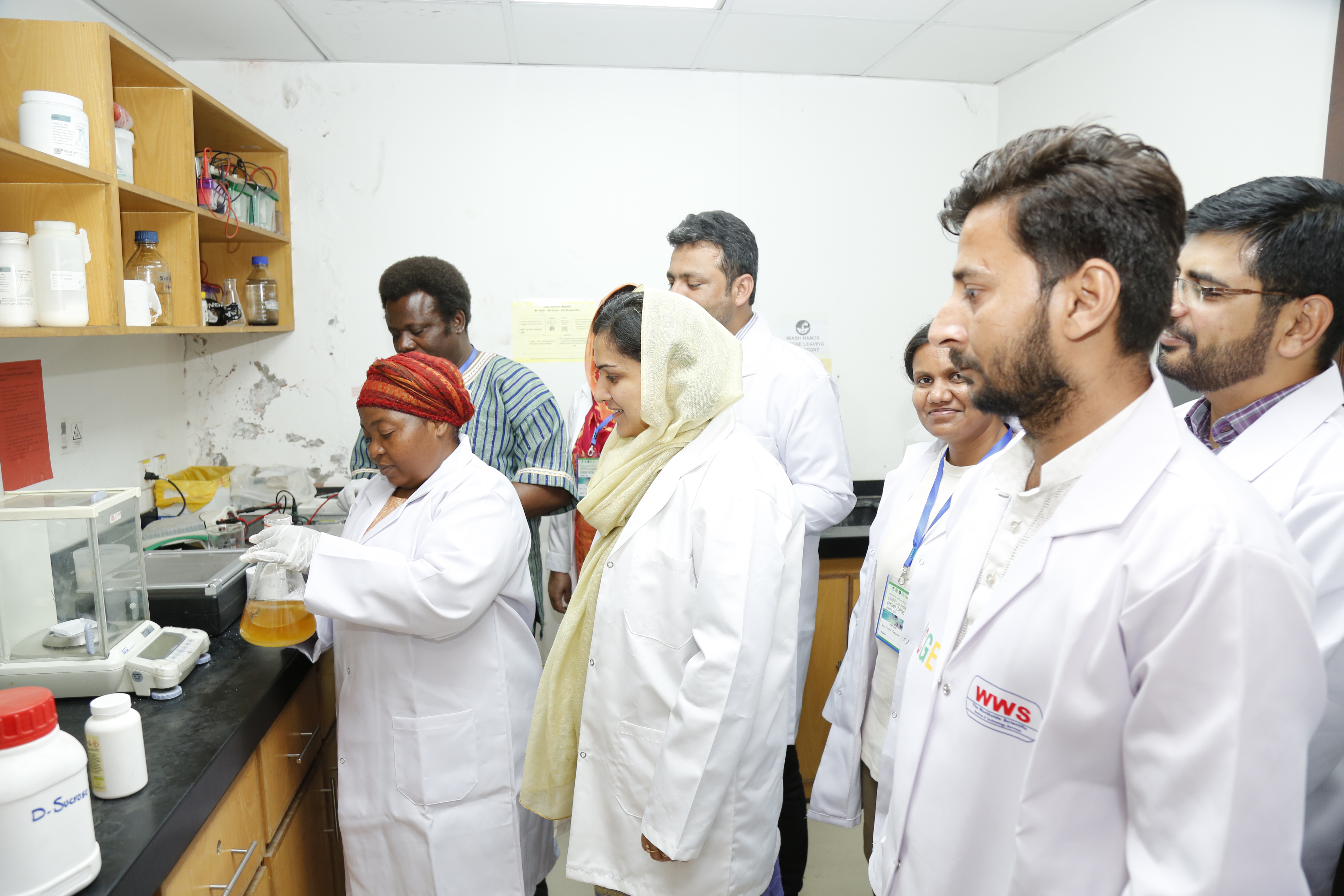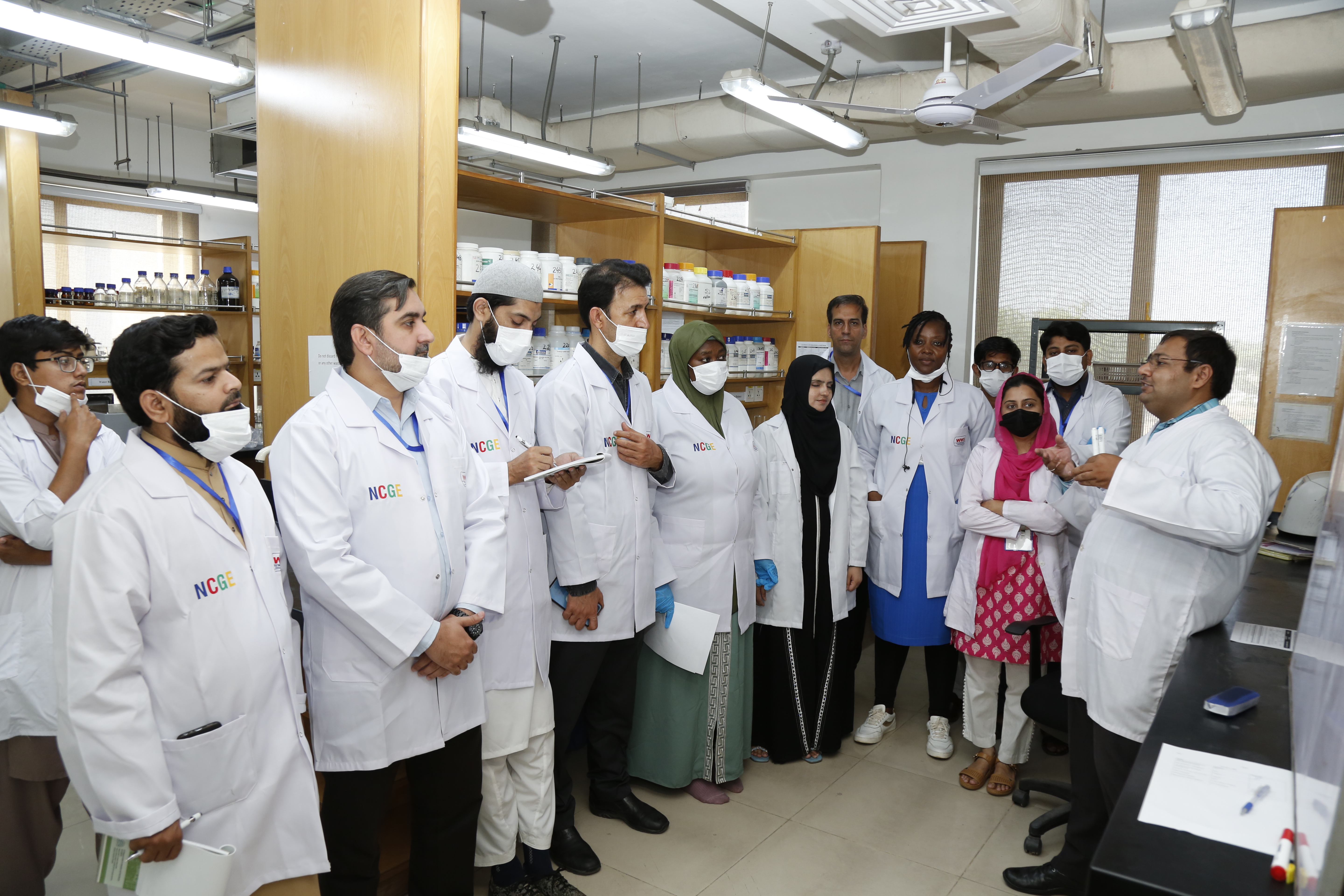Inaugural session of 1st International Hands-on Training on “CRISPR/CAS mediated Genome Editing”.
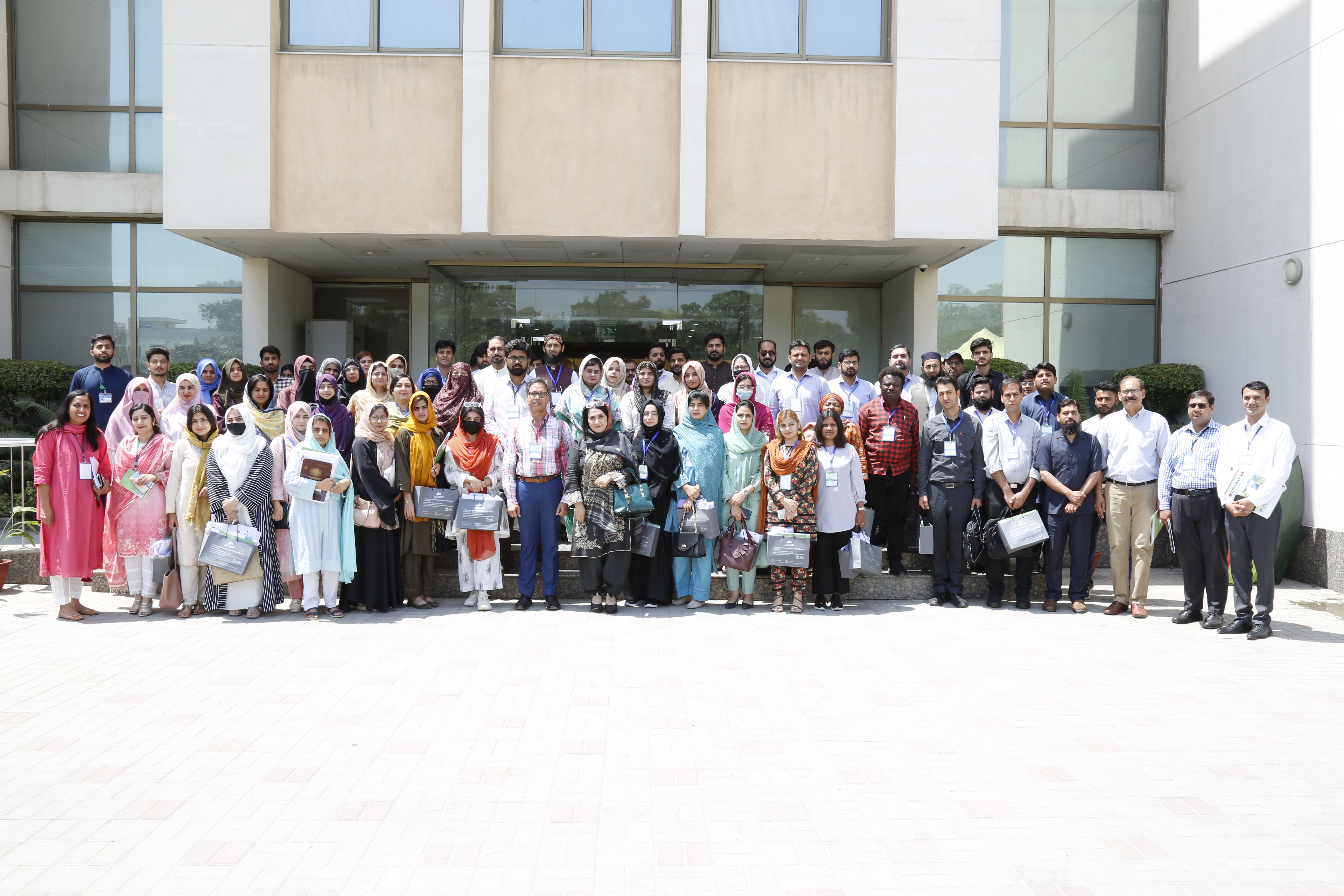
1st International Hands-on Training on “CRISPR/CAS mediated Genome Editing”
To mainstream genome editing in biological research, scientists at NCGE (UAF and PCSIR-Lahore) offered hands-on training programs to the professionals of public and private sectors involving agriculture and human health.
The 2nd International Six day Hands-on Training on “CRISPR/CAS mediated Genome Editing” is arranged by the NCGE, CAS-AFS, UAF, with the collaboration of PCSIR to train young and early career researchers in academia to have true hands-on experience in practicing basic techniques involved in genome editing experiments. The aim of this training session is to enable researchers to understand both theoretical and practical knowledge of genome editing technology, spanning in different disciplines to walk through their own lab environment for effective designing and execution of genome editing experiments in their research.
Prof. Dr. Sultan Habibullah, Director CAS-AFS chairs the inaugural session while Dr. Quratulain Syed, Director General LLC PCSIR, Dr. Shaukat Ali, Director NIGAB NARC. Moreover, Dr. Holger Puchta, Karlsruhe Institute for Technology, Karlsruhe Germany, Prof. Dr. Daniel Voytas, University of Minnesota, MN, USA and Dr. Brad Ringeisen, Exective Director, The Innovative Genomics Institute (IGI), University of California, Berkeley, CA USA also discussed various research domain related to genome editing research. Furthermore, Prof. Dr. Muhammad Sarwar Khan, Dean Faculty of Agriculture UAF and other notables spoke on the occasion.
Prof. Dr. Sultan Habibullah, Director CAS-AFS said that the center is set up to fully exploit the potential of genome editing to address the emerging challenges of agriculture and food security. He added that they were making all out efforts to address the issue of food security. Besides supporting academic programs and producing dozens of quality research publications from each lab, the CAS faculty is committedly working to develop new technologies and services to improve farm productivity and livelihood.
Dr. Quratulain Syed, DG PCSIR, emphasized that in this modern world of shortening boundaries and rapid dissemination of information, we can proudly claim that we are already well on our way towards globalization with a number of multinational personnel with ultimate goal for market acceptance and commercialization of genome edited products. She mentioned that the Food and Biotechnology Research Centre was established in 1977 by the merger of two separate divisions namely, Biological Evaluation and Fermentation and Food Technology & Nutrition. Among the major objectives of this centre, are the assistance in the establishment of food and biotechnology industry in the country through value-added output from low-priced raw material, bio-resource development and its utilization, quality assurance of finished products, resolution of industrial trouble-shooting, and attracting small and medium level entrepreneurs to establish the industry.
Dr. Shaukat Ali, Director NIGAB NARC, emphasized that on national and international regulations for GMOs and gene edited products, their handling issues with reference to Convention of Biodiversity (CBD) and the Cartagena Protocol on Biosafety (CPB) act. He discussed the general principles of Advanced Informed Agreement, Codex Alimentarius and Pakistan Biosafety Rules- 2005 (Amended-2024) to clarify the regulatory system for GM crops at Institutional (IBC), Technical (TAC) and National (NBC) level, with the proper categorization of various SDN levels.
At the completion of the event, Prof. Dr. Sultan Habib Ullah distributed certificates among the participants.
